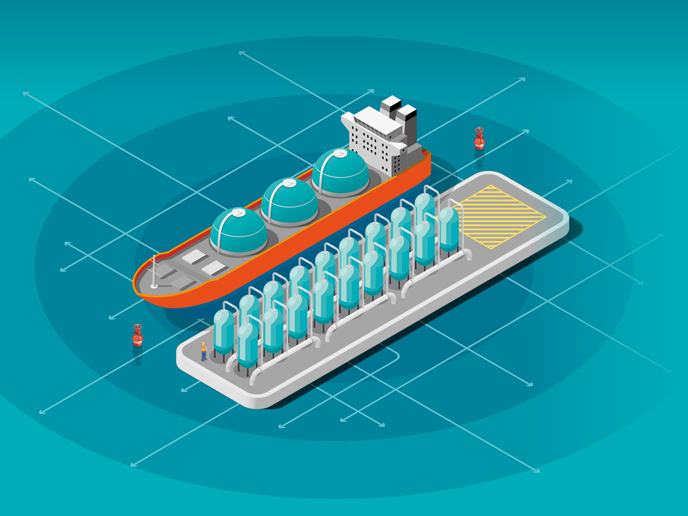VI - Turning biomass into green liquid natural gas
“The goal of this process is to completely make use of the green carbon found in biomass.”
Jürgen Karl, CarbonNeutralLNG project coordinator
While the electrification of the mobility sector has the potential to cut transport-related emissions in half, it does have its limitations. For example, heavy-duty, long-distance transport, such as maritime and aviation, will require fuel with high energy densities – such as liquified natural gas (LNG). Although LNG traditionally comes from fossil fuels, recent research has begun developing so-called ‘GreenLNG’, or liquid natural gas made from renewable resources such as biomass. While the process chain for producing such renewable LNG has advanced considerably, it is still plagued by significant carbon losses and high costs – both of which have hampered its uptake. “GreenLNG is crucial for a carbon-neutral transport sector and can play a key role in decarbonising the EU’s energy demand,” says Jürgen Karl, chair of energy process engineering at Friedrich-Alexander University(opens in new window). With the support of the EU-funded CarbonNeutralLNG(opens in new window) project, Karl is working to make GreenLNG a viable option for long-haul, heavy-duty transport. “One of the first things we aim to do is reduce the carbon losses associated with producing LNG from methane,” he explains. To do this, project researchers plan to use a sorption-enhanced electrically heated steam gasifier capable of providing both the syngas needed for chemical catalytic methanation and pure CO2 that can be converted into methane. “The goal of this process is to completely make use of the green carbon found in biomass,” adds Karl. Karl says the new process will feature efficient monitoring systems and will be optimised using artificial intelligence and machine learning algorithms. It will also be backed by policy recommendations for implementing such processes across Europe. “Developing an efficient and cost-effective alternative to the current use of fossil fuels in the transport sector is of high strategic importance,” concludes Karl. “Feasible GreenLNG process chains such as those proposed by the CarbonNeutralLNG project will open the door to exploring new energy sources and help decrease our dependence on fossil fuels.”



